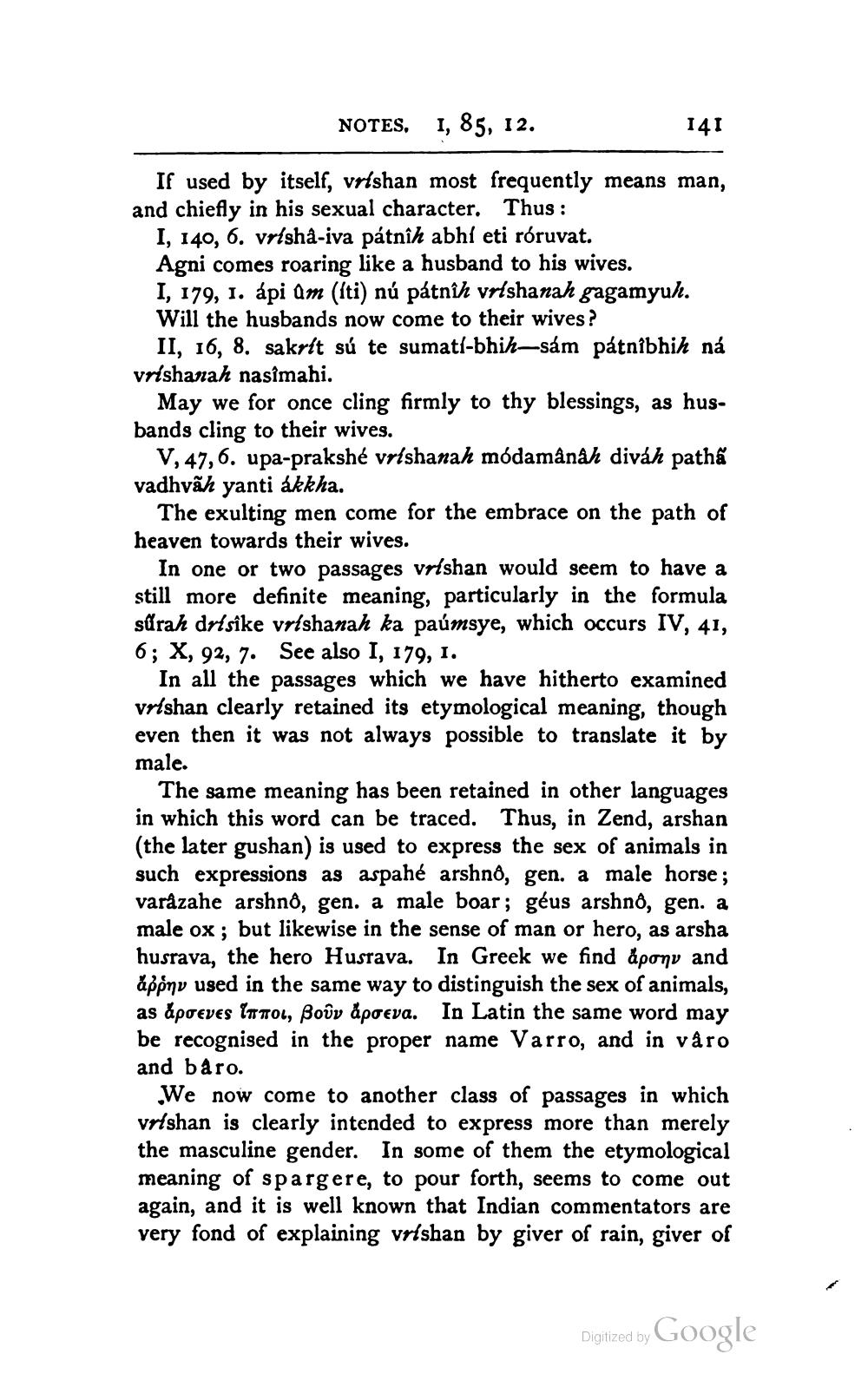________________
NOTES, 1, 85, 12.
141
If used by itself, vrlshan most frequently means man, and chiefly in his sexual character. Thus :
I, 140, 6. vrlsha-iva pátnih abhi eti róruvat. Agni comes roaring like a husband to his wives. I, 179, 1. ápi Am (sti) nú pátnih vrlshanah gagamyuh. Will the husbands now come to their wives?
II, 16, 8. sakrit sú te sumati-bhih-sám pátnibhih ná vrlshanah nasîmahi.
May we for once cling firmly to thy blessings, as husbands cling to their wives.
V, 47,6. upa-prakshé vrlshanah módamânâh diváh patha vadhvãh yanti dkkha.
The exulting men come for the embrace on the path of heaven towards their wives.
In one or two passages vrlshan would seem to have a still more definite meaning, particularly in the formula sürah drisîke vrishanah ka paúmsye, which occurs IV, 41, 6; X, 92, 7. See also I, 179, 1.
In all the passages which we have hitherto examined vrlshan clearly retained its etymological meaning, though even then it was not always possible to translate it by male.
The same meaning has been retained in other languages in which this word can be traced. Thus, in Zend, arshan (the later gushan) is used to express the sex of animals in such expressions as aspahé arshno, gen. a male horse; varázahe arshno, gen. a male boar; géus arshno, gen. a male ox; but likewise in the sense of man or hero, as arsha husrava, the hero Husrava. In Greek we find &pony and apóny used in the same way to distinguish the sex of animals, as &preves latou, Boûv å poeva. In Latin the same word may be recognised in the proper name Varro, and in våro and baro.
We now come to another class of passages in which vrlshan is clearly intended to express more than merely the masculine gender. In some of them the etymological meaning of spargere, to pour forth, seems to come out again, and it is well known that Indian commentators are very fond of explaining vrishan by giver of rain, giver of
Digitized by
Digized by Google




